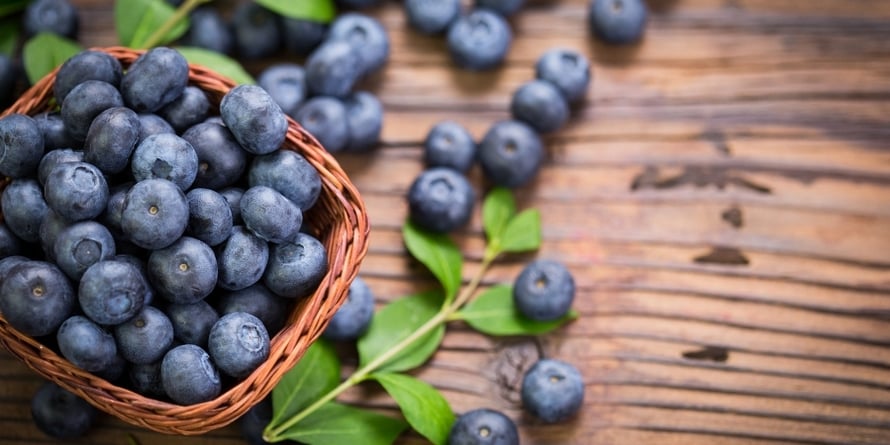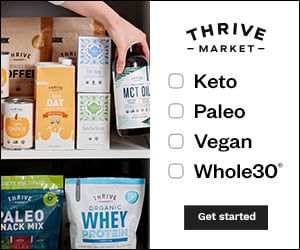Almond berry scones are elegant enough for a sophisticated brunch and easy enough to pull together for a laidback family picnic!
There are many different kinds of almond berry scones, including raspberry, blueberry, and blackberries. We are going to focus on our favorite, the classic blueberry almond scone, but feel free to get creative and let us know what other berries you’ve tried out below!
Do You Have Gluten Concerns?
We all know the frustration of wanting to try out a tasty new treat only to find out that the ingredients just won’t sit well with our bodies or dietary commitments.
Our gluten-free, vegan scone recipe will hopefully be aligned with what you’re looking for!
As always, we are committed to bringing joy to our audience through our delicious recipes, so if you need help substituting any of the ingredients, please let us know.
How to Properly Clean Berries
We take the time to wash our hands before a meal, it's only reasonable to extend that cleanliness to our food. Fruit and vegetables need to be properly cleaned in order to avoid possible contamination or exposure to harmful substances.
It’s estimated that about 48 million people get sick from food contamination in the USA each year. One of the first key steps to avoiding contamination is to pick fruit that isn’t bruised or damaged. Another tip to do while out shopping is to make sure that all pre-cut food that needs to be cooled, such as lettuce, is properly cooled at the store. Here are some more easy steps you can follow to decrease your chance of contamination:
- Wash your hands before and after preparing produce
- Cut away bruised or damaged spots on produce
- Rub the produce as you rinse it (before you peel)
- Dry produce with a paper towel or a clean cloth
It is important to note that one should never use soap, bleach, or other cleaning agents to wash their food. While many may be more wary of how they are washing their produce during this pandemic, it is also crucial to remember that ingesting such chemicals is harmful to the body. If you would like a more thorough scrub, you can use a produce brush.

Health Benefits of Blueberries
Did you know that blueberries are not only a delicious, low-calorie fruit but are also high packed with healthy nutrients? They’re known for their antioxidants, fiber, and vitamins C and K. They have also been linked to reducing one’s risk for heart disease and cancer as well as helps lower blood pressure.
Check out more about this superfood in our article 10 Vegan Superfoods for the Perfect Breakfast!
Organic vs. Inorganic Fruit, Are They Worth It?
If you’re just starting on the plant-based journey, or even just reassessing your diet to see if there’s some room for improvement, it may be time to start investigating the difference between organic and inorganic foods.
Assuaged prides itself on promoting healthy, organic products as we believe in supporting non-GMO and fully vegan foods to live our best, healthiest life!
Organic food typically has a label showing that it is organic. They are farmed without pesticides, chemicals used to combat pests. There is strong evidence that shows that pesticides have been associated with negative health issues, both short and long-term. Some studies have linked pesticides with skin irritation, nausea, dizziness, asthma, diabetes, and cancer. Others have linked pesticides with mental health disorders such as depression and anxiety. While many of you may have already understood the difference between organic vs. inorganic, some may still be unaware of the difference among the different certificate standards for organic food.
There are different certification standards for organic food in the United States. The United States Department of Agriculture (USDA) is the head agency that determines the organic farming standards for all farms in the USA. USDA has guidelines that address multiple factors, including soil quality, pest, and weed control, as well as the use of additives. While it sets the national standard, it does not provide enforcement to follow those standards.
Organic certification organizations are left with the task of enforcing these regulations. Unfortunately, without a unionized enforcement team, it can be easy for some to find loopholes to tag their produce as organic; therefore, we recommend that you do the following to decrease the risk of purchasing inorganic food:
- Shop from your local organic farms instead of industrial farms that ship nationwide
- Avoid the dirty dozen
- Purchase foods considered the clean fifteen
We recommend shopping from local farms instead of industrial farms as it is easier for small-scale farmers to regulate the farming techniques. This is also a great practice to help invest in your community! Unfortunately, the certification process to become known as an organic farm can be timely and costly. Some farmers may choose to not participate in receiving the official certification, but still practice organic methods by not spraying their produce with harmful chemicals. They tend to label their food as “unsprayed.”
If you would like to get a personal take on how switching to an organic lifestyle can lead to healing, check out Culinary Nutritionist Amie Valpone’s story here.
Looking To Try More Delicious & Healthy Dairy-Free Recipes?
-
Vegan Dairy-Free Sour Cream
-
Homemade Coconut Milk
-
Dairy-Free Cashew Cream Cheese
-
Avocado Coconut Dairy-Free Ice Cream
-
Plant-Based Strawberries & Cream
-
Raw Homemade Almond Milk
SAVE on great vegan organic products, meal plans, and more delivered to your front door from Thrive! 🌱 Help support Assuaged and a family or veteran in need by joining today!
Let us know how you dress up your favorite burger, and please send us a pic on the links below, we love to see your creative ideas! Also feel free to share any of your favorite recipes to make and share it with the Assuaged community on our ➡️ Share A Recipe ⬅️ page!
The below recipe was found and inspired by Nora Cooks, please visit their amazing website!























